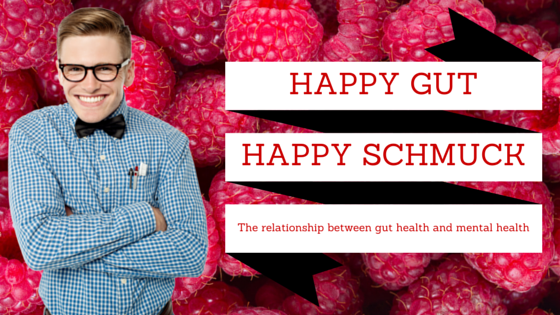 Irritable bowel syndrome is something that many adults deal with. Overall, about 10-15% of Americans suffer from IBS related symptoms. It is something I have suffered with, and this puts me in a unique position to provide advice and hopefully help you (the reader!) out.
Irritable bowel syndrome is something that many adults deal with. Overall, about 10-15% of Americans suffer from IBS related symptoms. It is something I have suffered with, and this puts me in a unique position to provide advice and hopefully help you (the reader!) out.
You can go to a generic page on the internet about IBS, but most of what’s out there is useless and unrelated for everyday people. Hopefully this article is different, and by the end you will be able to decide for yourself if you have IBS along with having some practical solutions to try out. I am no doctor, but most symptoms of IBS can effectively be treated by home remedies and by changing your diet around.
That being said, It is indeed difficult to treat, as it comes in many different forms such as:
- Diarrhea
- Constipation
- Bloating
- Cramps or pain in the stomach area
- And a gassy stomach
Irritable bowel syndrome can take the form of some or all of these symptoms. The worst is when you don’t know whether to expect diarrhea or constipation, as predicting which one is coming can be extremely difficult.
So what the heck can you do about? How can we begin to make our stomachs feel less like the poor apple in the picture below? The answer is that there a lot of good remedies to try before taking more drastic measures and visiting your doctor, or even having to go to a specialist where they might perform all kinds of unnecessary tests.
Treating IBS Symptoms Such As Gassy Stomach
IBS symtpoms can be treated a multitude of different ways including:
- Utilizing an elimination diet- The #1 best way to find out if some of these foods might be bothering you is to completely eliminate them from your diet. This may not be the most idea suggestion, but the alternative is to have expensive medical tests done in order to determine your food sensitivity. These tests can help, but An Elimination Diet might prove to be more useful and even more accurate.
- Upping Your Daily Fiber Intake– Increasing fiber intake is a great way to lose weight and feel better, however it can be known to irritate symptoms of IBS at times! It can even contribute to an even more gassy stomach and can leave you feeling bloated. This is why you MUST increase your water intake along with your increased fiber intake, as well as increase fiber intake over time. Water won’t completely get rid the symptoms, but fiber does cause excessive gas at first while your body is getting used to it.Eventually your body should adjust and be able to handle the increased fiber intake and ultimately your IBS should not be as pronounced.
- Reducing alcohol consumption- Alcohol dehydrates your system which exactly what you don’t want when you are increasing your fiber intake. Another effect of alcohol is its reduction on decision making which can lead to an increased intake of other sugary foods and snack. Together with alcohol this is a recipe for a hard night’s worth of bathroom trips. In moderation alcohol can be okay, but it might be a good idea to limit your consumption until your IBS is under control.
- Upping your water intake- This is right up there in level of importance as trying the elimination diet. Water is the giver of life and the under appreciated king of the weight loss world. Drink more water, and you will absolutely begin to see the benefits in all areas of your life.
- Having a doctor prescribe rifaximin in order to clean out the bacteria in your gut– The article linked to above is where I started when I was trying to truly combat the IBS that I was dealing with. I have not as of yet tried the rifaximin, but it is a great article to read to learn more about IBS. It helped me discover some great ways to deal with the symptoms, that don’t include seeing a gastroenterologist or getting a colonoscopy.
- Taking probiotics to increase the amount of healthy flora in your stomach- I currently take probiotics in the form of drinking Kefir. Kefir is a cross between milk and yogurt and tastes great in smoothies. Probiotics also come in the form of pill capsules and can be taken orally. The best probiotic for IBS is hard to determine, as there are multiple different factors to consider. I have used This One in the past and it has worked well for me.
- Excerise- Even light to moderate exercise can get your system moving and alleviate IBS symptoms. Working out is also a great way to burn some calories and reduce stress. Stress is another leading contributor to IBS symtoms. For example, on my drive home from a stressful day at work I can almost feel my insides unwinding and settling down. Sound familiar? Stress can be hard to avoid (Most of us have to work!) but exercise can be a great stress reducer and ultimately a great way to combat IBS.
- Citrucel or Metamucil- These are powdered fiber supplements that can help to normalize your bowel movements and leave you feeling better right away.
It ultimately depends on how your body reacts to treatments. It is important to start with increasing your water intake and eliminating certain foods. After that, try the other alternatives to really begin to kick your IBS to the curb.
IBS Foods to Avoid
Some common foods that may be causing your symptoms are as follows:
- Gluten
- Lactose
- Soy
- Peanuts
- Fish
- Eggs
As I mentioned above, try eliminating these foods altogether from your diet if possible, and then slowly adding them back in. This is the best way to determine your food sensitivities and to be able to eventually pick a diet that works for your system.
It is also important to remember that a lot of gluten free foods out there are not actually very good for you. Be sure that you are replacing these foods with some of the foods from the list below in order to see the best results.
The Best Foods for IBS
- Hot Peppermint Tea– This can really help to calm your system down as peppermint is a muscle relaxant.
- Fennel Tea
- Kefir- As mentioned, this is a great way to boost your Probiotic Intake.
- Fruits and vegetables such as apples and bananas that are high in fiber.
- Any type of food that is high in fiber is a good decision for your diet, but some of them may in fact worsen IBS symptoms due to food allergies. See my Fiber Content of Foods Chart to pick the foods that are high in fiber from certain food categories in order to avoid foods you may be sensitive to.
- Choosing to eat starchy carbohydrates might be a good step at improving your IBS symptoms in the short term, but you don’t want to stick with them long term as they are not the greatest foods for you.
The Best IBS Diet Plan
If you are looking for an easy and comprehensive diet plan for IBS I would suggest visiting my page for the Ultimate 30 Day High Fiber Diet Plan. This plan will help you to slowly add high fiber foods into your system in order to lose weight and feel healthier overall. You will have to be careful if you are sensitive to gluten and dairy and be sure to substitute certain items where appropriate.
Another great resource is this IBS Diet Sheet that has some other great tips on getting rid of IBS by changing your lifestyle. This includes keeping your eating habits consistent, and choosing not to eat late at night.
Final Thoughts On IBS:
Kicking your IBS to the curb is indeed a possibility for you. It is important for you to believe that it is true, and to make small changes over time to give yourself the best chance of success.
What are your thoughts on the subject? Have you encountered these type of IBS symptoms in the past?
Good luck in your quest for better health!
-Jordan







Recent Comments